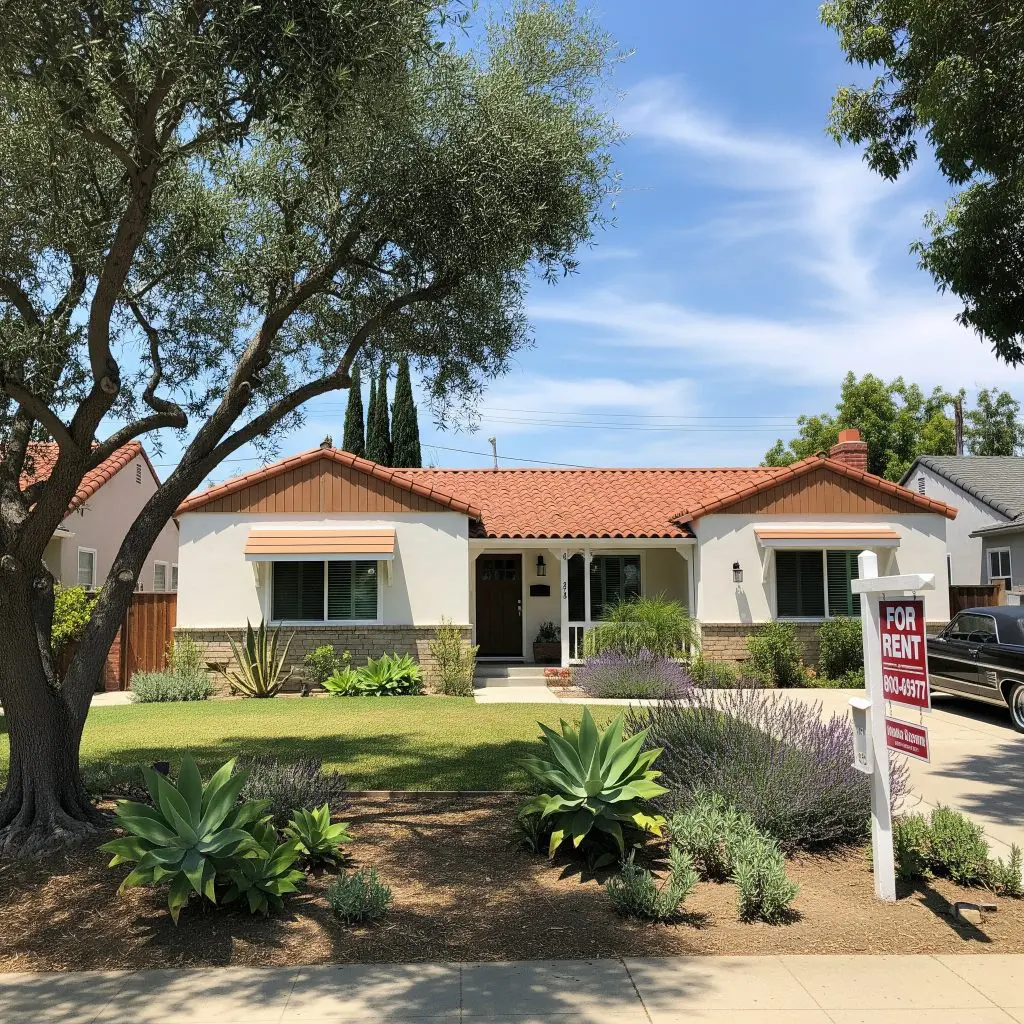Navigating Rental Property Refinancing: How to Get Cash Out Without a W2
LOS ANGELES. CA – AUGUST 11, 2025: For the modern real estate investor in California, the journey to expanding a portfolio or making capital improvements often starts with a single, critical question: How can I get cash out of my rental property without a W2? If you’ve built a thriving portfolio, you know that traditional lending requirements—which heavily scrutinize personal income and tax returns—can be a major roadblock. The good news? A revolutionary financing solution is here to help you bypass this obstacle and unlock your property’s equity.
- The Investor’s Advantage: Unlocking Equity with a DSCR Loan
- Current Market Insights for California Investors (as of August 11, 2025)
- Geo-Targeting Your Investment Strategy in California
- Why GHC Funding is Your Go-To Lender
- Q&A Section: Your Top Questions Answered
- The Final Step: Seize Your Next Opportunity
- Ready to get started?
This comprehensive guide will show you how to leverage a Debt Service Coverage Ratio (DSCR) loan to access the cash you need, focusing on the unique opportunities and market dynamics of the California real estate scene.
How to Get Cash Out Without a W2:
- The Investor's Advantage: Unlocking Equity with a DSCR Loan
- Current Market Insights for California Investors (as of August 11, 2025)
- Geo-Targeting Your Investment Strategy in California
- Why GHC Funding is Your Go-To Lender
- Q&A Section: Your Top Questions Answered
- 1. Is a DSCR loan the same as a <a href='https://www.ghcfunding.com/2025/texas-2/hard-money-for-property-development-in-dallas/'>hard money loan?
- 2. What is a good DSCR ratio?
- 3. Can I use the cash-out funds for any purpose?
- 4. How does my <a href='https://www.ghcfunding.com/2025/north-carolina-2/cash-out-refinance-with-a-low-credit-score-nc/'>credit score affect the loan?
- 5. Are DSCR loans only for single-family rentals?
- 6. Do I need to provide tax returns?
- The Final Step: Seize Your Next Opportunity
- Ready to get started?
The Investor’s Advantage: Unlocking Equity with a DSCR Loan
While traditional banks rely on your personal W2 income to approve a loan, a DSCR loan is different. This powerful financial product qualifies you based on the investment property’s cash flow, not your personal income. The lender simply evaluates whether the rental income from the property is sufficient to cover its mortgage payments, using a metric called the Debt Service Coverage Ratio (DSCR).
Need capital? GHC Funding offers flexible funding solutions to support your business growth or real estate projects. Discover fast, reliable financing options today!
⚡ Key Flexible Funding Options:
GHC Funding everages financing types that prioritize asset value and cash flow over lengthy financial history checks:
-
Bridge Loans: These are short-term loans used to "bridge the gap" between an immediate need for capital and securing permanent financing (like a traditional loan or sale). They are known for fast closing and are often asset-collateralized, making them ideal for time-sensitive real estate acquisitions or value-add projects.
-
DSCR Loans (Debt Service Coverage Ratio): Primarily for real estate investors, these loans are underwritten based on the property's rental income vs. debt obligation ($\text{DSCR} = \text{Net Operating Income} / \text{Total Debt Service}$), not the borrower's personal income or tax returns. This offers flexibility for those with complex finances.
-
SBA Loans: The Small Business Administration (SBA) guarantees loans offered by partner lenders. While providing excellent terms (long repayment, lower rates), the application process is typically slower than private/bridge funding, often making them less suitable for immediate needs. SBA eligibility heavily relies on the DSCR metric for repayment assessment.
🌐 Learn More
For details on GHC Funding's specific products and to start an application, please visit their homepage:

A DSCR of 1.0 or higher means the property’s income is at least equal to its debt obligations. This approach is a game-changer for savvy investors who may have multiple properties, business income, or other non-W2 income streams that complicate traditional loan applications.

Key Requirements and Benefits:
- No Personal Income Verification: The core benefit is that no W2s or personal tax returns are required. This streamlines the application process and removes a significant barrier for many investors.
- Property-Based Qualification: The loan is underwritten based on the property’s ability to generate income. Lenders will typically require a lease agreement or a market-rate rent analysis.
- Flexible Underwriting: Lenders like GHC Funding, a leader in alternative financing, offer flexible underwriting standards that consider the nuances of an investor’s portfolio, not just a rigid set of rules.
- Entity and Property Acceptance: These loans are available for various entities, including LLCs, corporations, and limited partnerships. They can be used to finance single-family rentals, multi-unit properties, and even short-term rentals like those on Airbnb.
Current Market Insights for California Investors (as of August 11, 2025)
The California real estate market presents a dynamic landscape for investors. Here’s what you need to know about current DSCR loan rates and requirements:
Interest Rates: As of today, DSCR loan rates for a 30-year term are typically in the range of 5.88% to 7.5%. This range is slightly higher than conventional mortgages but reflects the added flexibility and streamlined nature of the loan. The final rate you secure will depend on several factors:
- Loan-to-Value (LTV) Ratio: A lower LTV (meaning you have more equity in the property) will generally lead to a better rate.
- DSCR: A higher DSCR (the property’s income comfortably exceeds the mortgage payment) signals a lower risk to lenders and can earn you a more favorable rate.
- Credit Score: While a W2 isn’t required, a strong credit score (typically 680+) is still a key factor in securing the best terms.
- Property Type: Rates can vary based on whether you’re refinancing a single-family home in the 90210 zip code of Beverly Hills or a multi-unit apartment building in a high-growth area like Downtown Los Angeles.
Requirements: The process is designed to be efficient. Lenders will primarily focus on:
- Property Appraisal: A professional appraisal will determine the current market value.
- Lease Agreement or Rent Analysis: The lender will verify the property’s income potential.
- Borrower Profile: Lenders will review your credit history and asset statement, but not your personal income.
- Entity Documentation: If the property is held in an LLC or other entity, you’ll need to provide the necessary legal documents.
Geo-Targeting Your Investment Strategy in California
Refinancing a rental property for a cash-out isn’t a one-size-fits-all solution, especially in a state as diverse as California. The type of loan and the terms you get can be influenced by your location.
Consider a multi-unit property in the bustling, tech-driven neighborhoods of Silicon Valley, like Palo Alto or San Jose. The high rental demand and strong economic drivers here make for an excellent DSCR. The same is true for a vacation rental property in coastal hot spots like Corona Del Mar or Santa Monica, where high seasonal rents can bolster your DSCR.
Whether you are looking to finance a flip in an emerging market like Riverside County or stabilize a long-term rental in the family-friendly communities of San Diego, GHC Funding has a deep understanding of these local markets. Their expertise goes beyond a basic rate sheet, providing tailored advice for properties ranging from a luxury home in Beverly Hills to an apartment building near the University of California, Berkeley.
Quiz on California Rental Property Regulations

This quiz is designed to test your knowledge of the unique laws and regulations that govern owning and managing a California rental property. By understanding these key concepts, you can protect your investment and ensure compliance with state and local laws. Good luck!
Why GHC Funding is Your Go-To Lender
When it comes to refinancing your rental property with a DSCR loan, you need a partner who understands the unique needs of a real estate investor. GHC Funding (www.ghcfunding.com) specializes in these types of creative financing solutions. Unlike traditional banks, their core business is built on empowering investors.
- Market Expertise: Their team has an intimate understanding of the California market, from the economic engines of San Francisco to the vibrant communities of Orange County.
- Flexible Underwriting: They look beyond the numbers to the true potential of your investment, offering a more flexible and holistic underwriting approach.
- Streamlined Process: They offer a fast and efficient process, allowing you to access the cash you need to seize new opportunities without delay.
GHC Funding is not just a DSCR loan provider; they are a full-service partner for real estate investors. In addition to DSCR loans, they also offer a wide range of financing options, including SBA 7a loans, SBA 504 Loans, Bridge Loans, and other Alternative Real Estate Financing.
Q&A Section: Your Top Questions Answered
1. Is a DSCR loan the same as a hard money loan?
No, they are different. Hard money loans are typically short-term, asset-based loans with high interest rates, used for quick flips. A DSCR loan is a long-term, permanent financing solution for rental properties, offering more competitive rates and terms.
2. What is a good DSCR ratio?
A DSCR of 1.25 or higher is generally considered excellent, as it indicates that the property’s income is 25% more than its monthly mortgage payment. However, many lenders will approve loans with a DSCR as low as 1.0, and sometimes even slightly below for certain properties and circumstances.
3. Can I use the cash-out funds for any purpose?
Yes. A major advantage of a cash-out refinance is that the funds can be used for any purpose. Most investors use the capital for home improvements, to buy another investment property, or to pay off other debts.
4. How does my credit score affect the loan?
While your credit score isn’t the sole qualifying factor, it does influence your interest rate. Lenders view a higher credit score as a sign of financial responsibility, which can result in more favorable loan terms.
5. Are DSCR loans only for single-family rentals?
No. DSCR loans are versatile and can be used for a wide range of investment properties, including 1-4 unit residential properties, multi-family buildings, and even certain commercial properties.
6. Do I need to provide tax returns?
No. This is the primary selling point. The loan is not dependent on your personal tax returns or W2s. The lender focuses on the property’s financials.
The Final Step: Seize Your Next Opportunity
If you are a California real estate investor ready to take the next step, don’t let traditional financing hold you back. A DSCR loan is the key to unlocking your portfolio‘s potential.
Ready to get started?
Visit GHC Funding to learn more about how a DSCR loan can help you access the cash you need. Or, call their expert team directly at 833-572-4327 for a personalized consultation.
External Resources for California Real Estate Investors:
- California Department of Real Estate (DRE): The state agency overseeing real estate licensing and regulation in California.
- Los Angeles County Real Estate Investor’s Association (LAC-REIA): One of the oldest and largest real estate investor groups in the state, offering valuable networking and educational resources.
- California Association of REALTORS (C.A.R.) Market Data: Access a wealth of housing market data, statistics, and forecasts for different regions across California.
- FRED Economic Data for California: The Federal Reserve Bank of St. Louis provides comprehensive economic data, including the All-Transactions House Price Index for California.
- Zillow’s California Housing Market Overview: Offers current market trends, home values, and rental data for various cities and zip codes within the state.
Ready to get started?
Get a No Obligation Quote Today.
Use these trusted resources to grow and manage your small business—then connect with GHC Funding
to explore financing options tailored to your needs.
GHC Funding helps entrepreneurs secure working capital, equipment financing, real estate loans,
and more—start your funding conversation today.
Helpful Small Business Resources
